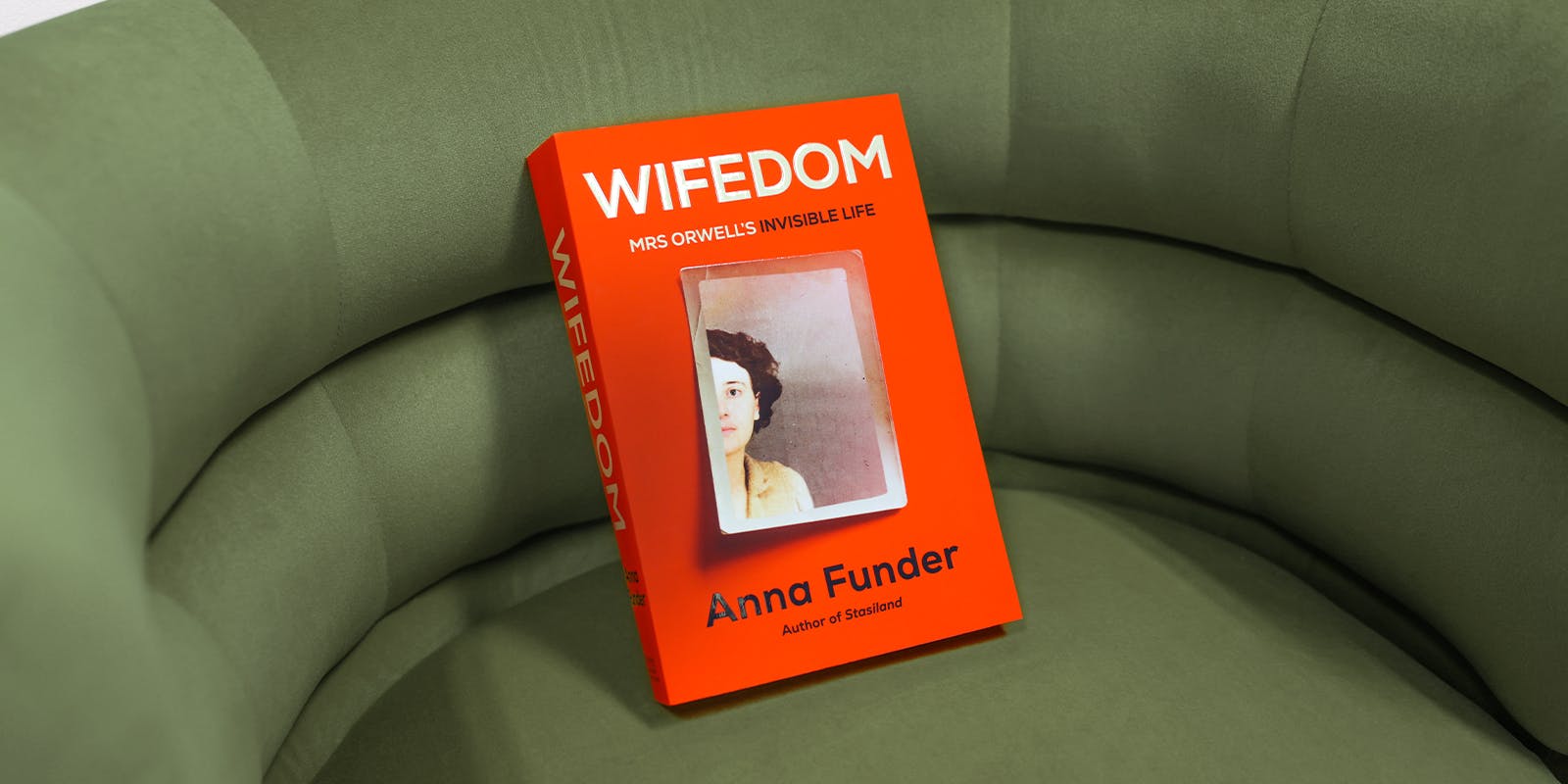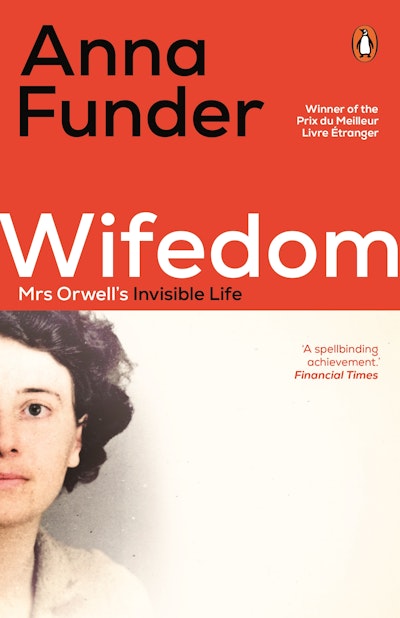A powerful blazing genre-bending masterpiece to discuss with your book club.
One of the most highly-anticipated and exciting novels of 2023 Wifedom is a fantastically unique read to discuss with your book club. Breaking free of genre norms and exploring a vast array of thematic material, the discussion points in Wifedom are nearly endless! We have narrowed down some of the most thought-provoking details and questions to provide you and your book club with the opportunity for fascinating and intriguing discourse.
DISCUSSION POINTS AND QUESTIONS
- Part biography, part memoir, part feminist treatise and part counterfiction, Anna Funder’s Wifedom is a book that defies genre. Discuss the different narrative threads of this work, and the role each plays in the whole.
- Eileen O’Shaughnessy, George Orwell’s first wife, is a woman elided from history. Why – and how – has she been written out of the story?
- A biographer’s work is akin to that of an investigation, and in the case of this book, has involved literary, historical, feminist and on-the-ground detective work to bring the subject of Eileen O’Shaughnessy back to life. What sense of Eileen do we have from this resurrection, and what was the extent and nature of her influence on her husband’s work?
- In 2005 six letters from Eileen to her best friend, Norah Symes Myles, were discovered, which cover the period of Eileen’s marriage to George Orwell, from 1936 to 1945. What purpose do these letters play in the re-imagining of Eileen’s life, and the crafting of Wifedom?
- Eileen’s friend Lydia Jackson regretted all that Eileen sacrificed by marrying Orwell, and most particularly the potential of her own brilliant career. In remembering Eileen, another friend and former colleague Edna Bussey reflected that ‘Writing was her love, I think.’ Do you agree?
- George Orwell has always been one of Funder’s literary heroes, and she describes how she came to writing this book by rediscovering the joy of his work and questioning the conditions of his production. As the story of Eileen and her marriage to Orwell emerges, Funder finds herself questioning the man behind the art she loves. How does she reconcile the creator with his work?
- In Wifedom Funder reveals more of herself – writer, woman, wife, mother – than in any of her previous books. Her candour allows the comparison of a woman, a writer and a wife of the early part of the twentieth century with a woman, a writer and a wife of today. We believe ourselves to be more enlightened, more woke to gender equality. But how much has really changed?
- Funder shares that she writes, as Orwell put it, because ‘there is some lie that I want to expose, some fact to which I want to draw attention’, and in her own writing she draws on a number of Orwellian concepts such as doublethink. Discuss.
- Early married life for the Orwells in their cottage in Wallington was a period marked by much hardship – and yet among the most productive and creatively-rewarding years for Orwell. How do the sexual politics of the creative life work?
- Like his hero Hemmingway, Orwell is revered, in part, for having fought the fascists in Spain, as chronicled in Homage to Catalonia. Yet despite her apparent absence in her husband’s text, Funder reveals that Eileen was there too – at the heart of the operation. How is she effaced in Orwell’s work?
- Orwell and Eileen flee England for Morocco in a bid to improve Orwell’s health. By his own account he does something there which several of the biographers find so uncomfortable that they try to doubt it, or hide it in a footnote. What does Funder do with Orwell’s account?
- As was the case for so many women, the Second World War opened employment opportunities for Eileen. Eileen worked at the Ministry of Censorship, in Senate House, the place Orwell took as his model for the Ministry of Truth in Nineteen Eighty-Four. How might her work there have informed Orwell’s understanding of government censorship?
- Later, Eileen meets Lettice Cooper through her work at the Ministry of Food during London’s Blitz. What does their friendship mean to Eileen?
- Motherhood is an undercurrent in Wifedom in more ways than one. For Eileen it is a longtime yearning, eventually realised in the adoption of a son, Richard. And motherhood provides for some of Funder’s most exposing, connective writing in this book. Discuss.
- Eileen’s death is horrific, premature, lonely and avoidable. What does the loss of Eileen represent for Orwell – and how is it reflected in his work?
- In bringing visibility to the life and influence of Eileen O’Shaughnessy, Funder offers an intimate view of one of the most important literary marriages of the twentieth century. How did the Orwell’s marriage defy convention? What was it that kept the couple together?
- Norah’s letters to Eileen have never been found, yet Funder gives Norah voice in the book’s final chapter. Discuss the book’s ending.
- Anna Funder’s literary career was ignited by Stasiland, a work of nonfiction that exposes the Stasi, and followed by her novel All That I Am, which lays bare Nazism. Both works look at systems of oppression from the point of view of people who have the insight and the courage to resist them, often women. In Wifedom, Funder takes on patriarchy itself. Discuss.













